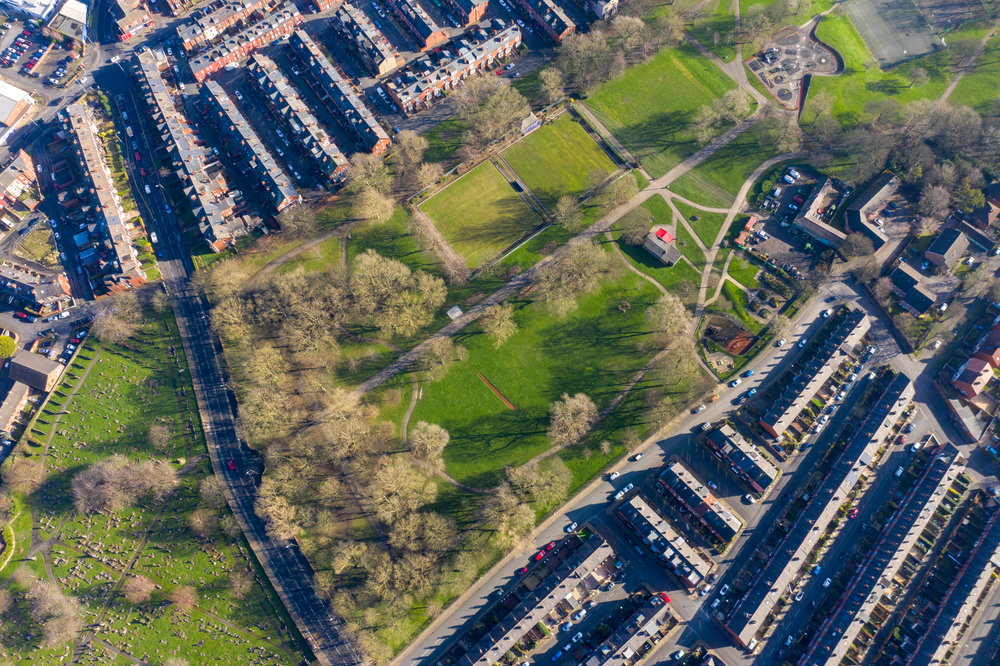Is there a more pressing need than one for shelter; a roof over one’s head, four walls to keep out the cold? Maybe, maybe not, but one thing is certain, housing ministers have an extremely important job.
Fortunately, they are supported by an army of people whose primary goal is to ensure that every citizen does indeed have a roof over their head and four walls to keep out the cold.
We’re going to look at the roles and responsibilities within the Department for Levelling Up, Housing, and Communities (DLUHC) to get an idea of how many people it takes to build a village.
Department for Levelling Up, Housing, and Communities
Previously the Ministry for Housing, Communities, and Local Government, the Department for Levelling Up, Housing, and Communities is responsible for housing, job creation, planning and building safety, and supporting communities throughout the UK.
The department is headed by the Minister of State, with several boards, teams, committees, and organisations to help deliver, monitor, manage, and report on all things housing and community-related.
More specifically, the Minister of State (Minister for Housing, Planning, and Building Safety) is responsible for:
- Delivering the country’s housing supply strategy
- Planning and policy implementation, for example, Nationally Significant Infrastructure Projects (NSIP) and Overall Reform.
- The safety of buildings, developing new safety standards for public sector housing and improving the quality of the current housing stock
- The implementation of the Leasehold and Freehold Reform Act
Here’s a brief look at the roles within the department.
Ministers
- Secretary of State for Levelling Up, Housing, and Communities / Minister for Intergovernmental Relations
- Minister of State (Minister for Housing, Planning, and Building Safety
- Parliamentary Under Secretary of State (Housing and Homelessness)
- Parliamentary Under Secretary of State (Levelling Up)
- Parliamentary Under Secretary of State (Social Housing and Faith, and Lords Minister)
- Parliamentary Under Secretary of State (Local Government)
- Parliamentary Under Secretary of State (Housing and Communities
Management
- Permanent Secretary
- Director General; Local Government, Resilience and Communities
- Director General; Regeneration, Housing, and Planning
- Director General; Levelling Up
- Director General; Safer and Greener Buildings
- Director General; Chief Financial Officer
- DLUHC Chief Scientific Advisor
- 3 x Non-Executive Directors
The Board
The board is all about delivery performance and how effective policies and legislation are when implemented. It plays a supervisory role as it informs ministers about the practical side of policy proposals, especially the effectiveness of the policies on the ground.
The aim is to put policies into action, which will deliver (quantifiable) results and provide feedback about their relative success or failure.
The board then plays an advisory role when it passes the information on to housing ministers.
Key areas of responsibility include
The Board’s primary focus may be delivery performance, but that’s not its only responsibility. Others include:
- Developing public sector housing strategies and following them through to fruition.
- Ensuring the department is sufficiently staffed (with experts in their field) to deliver strategies and plan for future needs.
- Monitoring the plan and nudging it in the right direction when necessary.
The DLUHC Board comprises
- The chair: Secretary of State for Levelling Up, Housing, and Communities
- Minister of State
- 5 x Parliamentary Under Secretaries of State
- Permanent Secretary
- Director General; Local Government, Resilience, and Communities
- Director General; Chief Financial Officer
- Lead Non-Executive Director
- 3 x Non-Executive Directors
The Executive Team
The Board strategises and monitors the implementation of the Housing Act and other regulations, the Executive Team manages the department’s daily functioning.
The Team doesn’t often attend board meetings, only when topics under discussion are relevant to its mandate.
The Executive Team Comprises:
- Permanent Secretary
- Director General; Local Government, Resilience, and Communities
- Director General; Levelling Up
- Director General; Safer and Greener Buildings
- Director General; Regeneration, Housing, and Planning
- Director General; Chief Financial Officer
- Director General; Union and Windsor Framework
Regulator of Social Housing (RSH)
Overall, the Regulator of Social Housing ensures that the social housing sector is well-governed and delivers the goals set by higher Housing bodies, for example, to provide more high-quality affordable homes.
The non-departmental government body oversees local authorities and housing associations. It also sets the standards for all aspects of public housing and can take action against social housing providers that fail to meet the quality standards.
Audit and Risk Assurance Committee (ARAC)
The Committee provides advice and support to the RSH’s Board and Accounting Officer on most things finance-related, including internal controls and key financial management.
The committee meets at least three times a year during the reporting and audit cycle.
Can Marketing Work In Public Sector Housing?
Yes.
Social housing organisations and affordable housing provided by local public authorities need procurement services for things like plumbing and electrical maintenance. Suppliers must put themselves front and centre to attract the attention of private sector housing associations and local government housing providers.
The thing is that suppliers would rather spend time and energy improving service delivery. That’s perfectly alright because Cadence Marketing specialises in B2G marketing. With decades of experience in the industry we’re ready and waiting to help you boost your brand’s awareness and reputation.
Contact us now and discover how professional marketing can drive your business forward.


